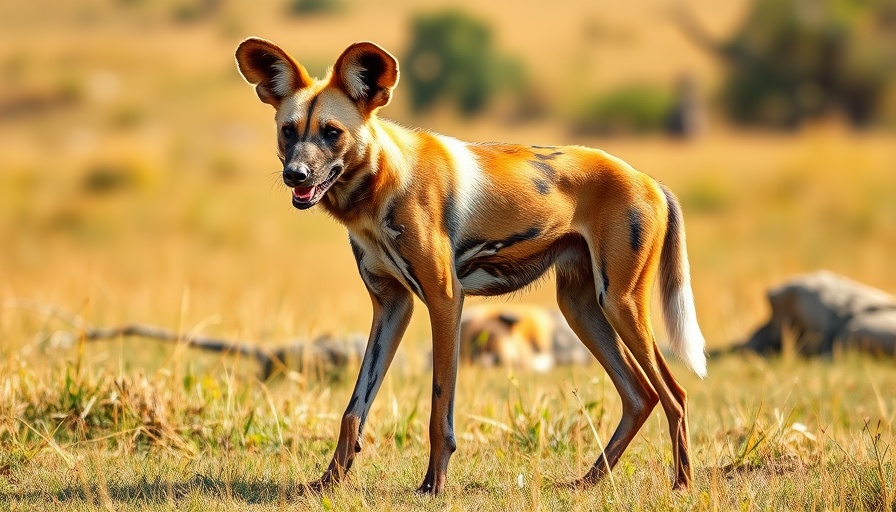
The Fascinating World of African Wild Dogs
This World Wild Dog Day, celebrated on August 26, serves as a crucial reminder of the importance of African wild dogs in our ecosystems. Influenced by this year’s celebration at the Bothongo Rhino & Lion Nature Reserve, let's delve into some extraordinary facets of these endangered predators that elevate their status not just as wildlife but as integral pieces of ecological balance.
Understanding Their Scientific Background
Although they bear the name "dogs," African wild dogs belong to a unique genus called Lycaon and are distinct from domestic canines, wolves, and jackals. Aptly named the "painted wolf" or Lycaon pictus, these animals are spectacularly adapted to their environment and showcase further diversity through their vibrant and unique coat patterns, which vary as uniquely as human fingerprints.
A Look at Their Status as Endangered Creatures
Regrettably, the population of African wild dogs stands at a mere 6,600 adults, marking them among Africa's most endangered carnivores. The primary threats they face include habitat fragmentation, escalating human-wildlife conflict, and diseases transmitted from domestic animals. Understanding these threats allows for a greater appreciation of conservation efforts that focus on preserving their natural habitats and mitigating interaction with human settlements. This conservation angle is critical in the context of broader discussions surrounding biodiversity protection and ecological stability.
Understanding Their Social Dynamics
These canines are remarkable not just for their physical attributes but also for their social structures. A distinct feature of their societal behavior is their unique method of consensus-building before a hunt. The pack engages in a ritual that involves sneezing, which signals their preparedness to strike. This intriguing behaviour highlights their understanding of teamwork, with an astounding 90% hunting success rate, which allows them to thrive despite the challenges they face.
Symbol of Resilience in Nature
Notably, wild dog packs are known for their strong social bonds, with all members contributing to the nurturing of pups, amplifying deep-rooted community ties. As packs raise their young together, they exemplify interconnectedness—an important theme for ecological discussions today, emphasizing the role of species within broader environmental frameworks.
Exploring Their Physical Attributes
The African wild dog possesses physical adaptations that further enhance its hunting efficiency. Their large, rounded ears serve dual functions: they enable acute hearing—which is crucial for tracking prey—and help regulate body temperature, a vital adaptation given the heat of their native habitats. In a world increasingly dominated by climate challenges, such adaptations take on new significance as we witness shifts in ecosystems driven by climate change.
Insights on Conservation Efforts
As climate and ecological instability continue to affect animal populations globally, heightened awareness and participation in the protection of species such as the African wild dog are essential. Their role in maintaining ecological balance reinforces the importance of biodiversity, which is intricately tied to climate resilience. Working together in conservation efforts—from accessible ecotourism opportunities to educational outreach—can stimulate greater appreciation for these magnificent creatures.
Reflecting on Our Commitment to Nature
As we celebrate World Wild Dog Day, let's acknowledge that the African wild dog is more than an endangered species; it represents our planet’s intricate web of life. Through collective responsibility and commitment to sustainable practices, including adoption of renewable energy sources such as solar and wind, we can work toward a future where both wildlife and humanity flourish together.
This year's celebration serves as an invitation for professionals interested in biodiversity and environmental sustainability to join in the dialogue around wildlife conservation efforts. Explore opportunities for collaboration and innovation in protecting not just African wild dogs, but the ecosystems they help sustain. The journey toward ecological enlightenment is a shared one, and, collectively, we can drive impactful change.
 Add Row
Add Row  Add
Add 




Write A Comment